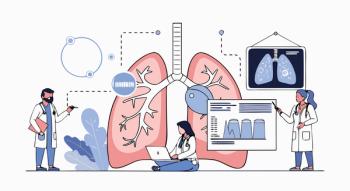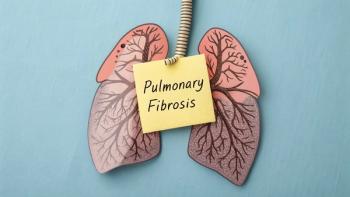
The Need to Enhance Diagnosis and Treatment for Pulmonary Hypertension-ILD Patients Across Europe
Two industry-sponsored studies investiaged needs of people with pulmonary hypertesion and interstitial lung disease.
Pulmonary hypertension is a serious condition that occurs when blood pressure in the lungs is higher than normal, and it contributes to substantial disease burden. Interstitial lung disease (ILD) is group of diseases that is characterized inflammation and scarring.
The disease can occur together. Two new European studies highlight importance of improving diagnosis and treatment of pulmonary hypertension associated with ILD.
One study was a qualitative research project carried out by clinical experts, European pulmonary medicine group and Ferrer, a Spanish company that has licensed treprostinil from United Therapeutics. Treprostinil is sold under the name Remodulin when it is formulated for infusion and as Tyvaso when it is formulated to be inhaled.
The finding, published in Pulmonary Circulation earlier this year, collected insights from those living with this debilitating disease and found that early recognition of pulmonary hypertension-ILD symptoms could be life-changing.
The study included 10 patients with confirmed diagnoses and five caregivers—including spouses, relatives or close friends. From this group, four patients and three primary caregivers were selected to participate in a virtual meeting to establish the participant panel.
The thematic analysis revealed six major themes, with symptoms and physical limitations being the most significant. Among the symptoms, shortness of breath emerged as the most distressing, impacting patients’ daily lives. Other reported symptoms included fatigue, cough, dizziness, syncope, edema and palpitations.
Physical limitations were primarily associated with reduced mobility, which hindered patients’ abilities to carry out daily activities, pursue hobbies and sports or enjoy traveling.
Although existing antifibrotic treatments and therapies for pulmonary arterial hypertension were viewed as beneficial, patients expressed that severe disease burdens and unmet medical needs still existed despite treatment advancements.
The provision of supplemental oxygen was highlighted as particularly important for enhancing patients’ mobility and overall daily wellbeing. Additionally, both patients and caregivers faced significant challenges in navigating the healthcare system and obtaining sufficient information to alleviate their considerable uncertainties.
The authors noted the findings underscore the notable difficulties that rare and complex conditions like pulmonary hypertension-ILD present in routine clinical practice outside of specialized centers, demonstrating an urgent need for high-quality, patient- and clinician-focused information to support patient-centered care.
The second study, also funded by Ferrer, was a questionnaire-based survey focusing on patients from France, Germany, Italy, Spain and the United Kingdom. It showed revealed significant unmet needs in managing this rare disease, including a demand for comprehensive screening and diagnostic protocols, as well as effective and approved treatments across Europe.
The results were published in ERJ Open Research this fall. The respondents included clinical pulmonologists, cardiologists and rheumatologists, who collectively manage 110 ILD patients, 73 pulmonary hypertension patients and 20 pulmonary hypertension-ILD patients each year.
The clinicians’ remarks emphasize the need for increased efforts in education, multidisciplinary collaboration among specialists and the generation of more evidence regarding pulmonary hypertension-ILD and its various subtypes.
Newsletter
Get the latest industry news, event updates, and more from Managed healthcare Executive.























